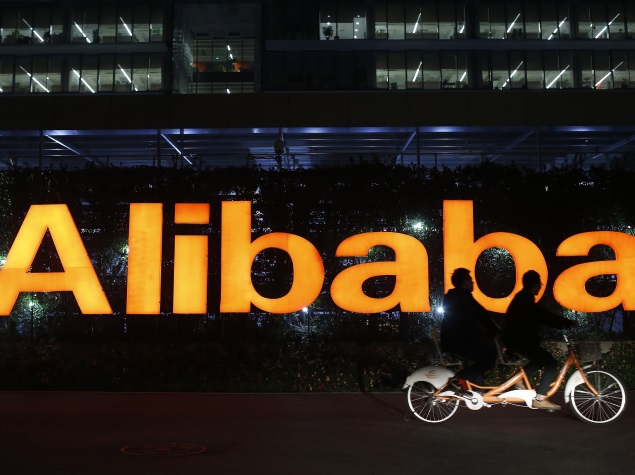- Home
- Internet
- Internet Features
- Mega Retailers Battle to Survive as E Commerce Booms in China
Mega Retailers Battle to Survive as E-Commerce Booms in China

It took China's biggest retail chain Suning all last year to generate sales of about $17 billion. Last month, e-commerce giant Alibaba saw sales worth more than half that amount pass through its Tmall website in just one day.
Big retailers like Suning Commerce Group Co Ltd and foreign rivals Wal-Mart Stores Inc and Best Buy Co Inc are struggling to attract customers to their traditional stores in China, where online shopping is booming.
"The trend is definitely towards e-commerce because that's where the consumers are," said Frank Lavin, CEO of Export Now, which helps global firms launch their business in China.
"The 'big box' model here is already crowded. You need to invest a lot and be here on a large scale to make it work."
This month, Best Buy sold its Chinese business, which had struggled to fend off local rivals.
Other firms have also complained that operating in China has become more challenging. This week, Wal-Mart said it had found pricing discrepancies on its China books, which reportedly were made to make its retail business look better at a time when transactions were slowing and unsold inventory was piling up.
French hypermarket operator Carrefour SA has also reported weak China sales.
(Also See: Alibaba-Backed China Mobile App Momo Says CEO to Fight Misconduct Allegations)
One of the main challenges facing retail chains is the shopping habits of Chinese consumers.
Most prefer the convenience, and often lower prices, offered by online shopping and when it comes to food, many people would rather go to local grocers than big supermarkets. Showrooming, or visiting a physical store to check out an item and then buying it online, is also common.
"I usually go to offline stores to check the real products, then I will go online to compare the price and services of different online stores," said Lena Chen, 31, a university professor in Shanghai.
"That means I rarely buy in stores such as Suning or Best Buy, though they do help me decide what to buy," she said.
Traditional retailers have taken note.
Sun Art Retail Group Ltd, China's largest hypermarket operator, launched an online store this year and said its e-commerce business would help drive future sales.
Suning and rival Gome Electrical Appliances Holding Ltd are also trying to boost online sales to help revive profit growth.
The competition between traditional retailers, as well as their e-commerce rivals, means firms spend more on marketing and discounts, giving those with the deepest pockets an advantage.
Alibaba, which recently raised a record $25 billion in an initial public offering, saw more than $9 billion of trade on its online Tmall platform on its annual "Singles Day" shopping event last month, while JD.com Inc, China's second largest e-commerce firm, said revenues rose 61 percent to $4.73 billion in the third quarter of the year.
"E-commerce just amplifies competition and some players in the consumer space will get squeezed out," said Torsten Stocker, Hong Kong-based partner at consultancy firm A.T. Kearney.
© Thomson Reuters 2014
Get your daily dose of tech news, reviews, and insights, in under 80 characters on Gadgets 360 Turbo. Connect with fellow tech lovers on our Forum. Follow us on X, Facebook, WhatsApp, Threads and Google News for instant updates. Catch all the action on our YouTube channel.
Related Stories
- Samsung Galaxy Unpacked 2026
- iPhone 17 Pro Max
- ChatGPT
- iOS 26
- Laptop Under 50000
- Smartwatch Under 10000
- Apple Vision Pro
- Oneplus 12
- OnePlus Nord CE 3 Lite 5G
- iPhone 13
- Xiaomi 14 Pro
- Oppo Find N3
- Tecno Spark Go (2023)
- Realme V30
- Best Phones Under 25000
- Samsung Galaxy S24 Series
- Cryptocurrency
- iQoo 12
- Samsung Galaxy S24 Ultra
- Giottus
- Samsung Galaxy Z Flip 5
- Apple 'Scary Fast'
- Housefull 5
- GoPro Hero 12 Black Review
- Invincible Season 2
- JioGlass
- HD Ready TV
- Latest Mobile Phones
- Compare Phones
- Tecno Pova Curve 2 5G
- Lava Yuva Star 3
- Honor X6d
- OPPO K14x 5G
- Samsung Galaxy F70e 5G
- iQOO 15 Ultra
- OPPO A6v 5G
- OPPO A6i+ 5G
- Asus Vivobook 16 (M1605NAQ)
- Asus Vivobook 15 (2026)
- Brave Ark 2-in-1
- Black Shark Gaming Tablet
- boAt Chrome Iris
- HMD Watch P1
- Haier H5E Series
- Acerpure Nitro Z Series 100-inch QLED TV
- Asus ROG Ally
- Nintendo Switch Lite
- Haier 1.6 Ton 5 Star Inverter Split AC (HSU19G-MZAID5BN-INV)
- Haier 1.6 Ton 5 Star Inverter Split AC (HSU19G-MZAIM5BN-INV)







![[Partner Content] OPPO Reno15 Series: AI Portrait Camera, Popout and First Compact Reno](https://www.gadgets360.com/static/mobile/images/spacer.png)









